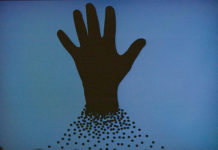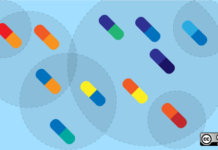Depressed People Surf Differently
In a study to be published in a forthcoming IEEE Technology and Society researchers at Missouri University recruited 216 undergraduates, finding that the 30% who...
Increased Risk of Preterm Birth in Women Taking Antidepressants
A detailed meta-analysis of the published research on women taking antidepressants during pregnancy finds that the rate of preterm birth is nearly doubled in the third...
Intact Facial Affect Processing in Schizophrenia
In two separate studies (one replicating the other) of 102 people with schizophrenia diagnoses researchers from McGill, UCLA, CSU, UNC, Columbia and the VA...
Antipsychotics Linked to Increased Breast Cancer Risk
Long-term exposure to prolactin-increasing antipsychotics increases the odds of developing breast cancer.
Prolonged Negative Impacts of Benzodiazepine Use Revealed in New Study
Researchers find that adverse effects often last over a year, with many users experiencing substantial life changes.
New IRIS Guidelines for Early Intervention in Psychosis
The 'Initiative to Reduce the Impact of Schizophrenia" (IRIS) has updated its 1998 guidelines for early intervention in psychosis to state that not all people...
Using Participatory Action in Bioethics Research
Participatory action approaches in bioethics research used to decrease coercion and seclusion in psychiatric treatment.
Antipsychotic Drug Associated with Potentially Fatal Skin Rash
The US Food and Drug Administration is warning the public that the antipsychotic medication ziprasidone "is associated with a rare but serious skin reaction...
U.N. Calls for Investigation of Shocks at U.S. School for Autism
The U.N. special rapporteur on torture has opened discussions with the U.S. mission in Geneva as a first step toward investigating the Judge Rotenberg...
Biogen Pushes FDA to Approve Failed Alzheimer’s Drug
A new analysis, published in Lancet Neurology, demonstrates how Biogen is spinning results from two failed trials for a new Alzheimer's drug.
Company Suing to Prevent Increased Drug Trial Transparency
A company that conducts clinical drug trials for pharmaceutical companies is taking legal action against the UK government over transparency requirements.
Mice Without Serotonin Do Not Display Depression
Mice genetically developed to lack the ability to produce serotonin in their brains did not display any depression-like symptoms or behaviors, according to a...
The Increasing Placebo Response in Antipsychotic Drug Trials
The American Journal of Psychiatry explores the implications for science and ethics of the rising placebo response rate in trials of antipsychotic drugs, in an...
Anticholinergic Drugs, Including Antidepressants, Linked To Later Cognitive Problems
A new study, published in JAMA Neurology, found that older people who regularly took anticholinergic drugs, including certain cold medicines or antidepressants, had poorer...
Counter-Messaging Downplays Effectiveness of Exercise for Depression
Counter-messaging and a lack of critical analysis may lead doctors away from suggesting exercise for depression.
Review of Dietary Supplements for Depression
A review of dietary drug supplements for depression in the May issue of the Journal of Psychosocial Nursing and Mental Health Services finds that...
New From Peter Breggin: “We Should Work Towards a Prohibition Against Giving Psychiatric Drugs...
A new article by Peter Breggin, in the journal Children & Society, outlines The Rights of Children and Parents In Regard to Children Receiving...
New Study Explores Approaches to Discontinuing Antidepressants
Psychiatrist and psychologist outline pharmacological and psychotherapeutic strategies for discontinuing antidepressants.
Individuals With Low Incomes More Likely to Have Chronic Pain
Findings show that participants with lower levels of education and SES suffer from more chronic pain.
Neurobiology and Schizophrenia: “The Elusive Correlation”
Despite developments in neuroscience that provide "a way to study schizophrenia in vivo ... efforts to understand the neurobiological bases of the clinical symptoms that...
5,012 Englishwomen Poisoned Last Year by Benzos, 8,501 by SSRIs
Addiction Today reports "Attention on illicit drugs has deflected focus from the gigantic scale of harms by legal, prescribed drugs. We give you the...
High-Fat Diet and Obesity Contribute to Depression, Brain Changes
"Chronic consumption of high-fat food and obesity induce plasticity-related changes in reward circuitry that are associated with a depressive-like phenotype," says a study appearing...
Quality of Relationship to Doctor Significantly Improves Antidepressant Efficacy
The more that patients feel that they have a high-quality relationship with their prescribing physician, the more likely that they will regard their own responses to antidepressants as positive.
Day Two of the Philly J&J Trial: “Risperdal Popcorn” & Other Perks
Testimony at day two of the Philadelphia trial concerning a 17-year-old Texas boy who grew breasts after taking Risperdal from the age of five...
More Psychological Supports Needed to Manage Antidepressant Discontinuation
Study reviews psychological interventions for antidepressant discontinuation.

















